Presentations
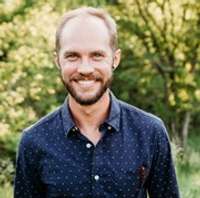 Matthew VonHerbulis, Hope International and Founder and Program Manager – Sowers of HOPE, Rwanda
Matthew VonHerbulis, Hope International and Founder and Program Manager – Sowers of HOPE, Rwanda
Biography: Matthew received his Bachelor’s Degree in Intercultural Studies from Palm Beach Atlantic University, Florida in 2010. After university, he worked in several places including World Hunger Relief in Waco, Texas. He and his wife, Karli, have served as missionaries in Rwanda with New International since 2016, along with their two children, Hallelujah and Shepherd. In 2017, Matthew founded Sowers of HOPE, an agriculture ministry equipping churches with theological and technical resources so that Christian farmers become catalysts for nutritional, economic, environmental, and spiritual growth in their communities. In 2020, Sowers of HOPE was absorbed by HOPE International, where Matthew now serves as the program’s manager.
Creative Capacity Building and Entrepreneurship
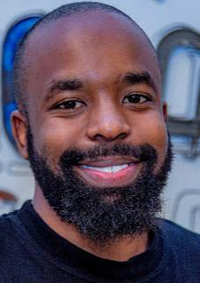 John Nzila: Empowering Communities through Grassroots Innovation: Insights from Creative Capacity Building in Tanzania
John Nzila: Empowering Communities through Grassroots Innovation: Insights from Creative Capacity Building in Tanzania
Biography: John Rexford Nzira is a big believer in the future of today’s youth. He has been working at Twende Social Innovation Center since 2018 and serving as the Executive Director since 2020. John’s daily mission is to inspire and equip the youth with training in creativity, innovative thinking, and practical “hands-on” implementation. He has progressively championed various programs and projects at Twende including tech incubation, STEM clubs, and the extension of Twende to the Kilimanjaro region by establishing the Twende-Orkolili satellite center.
Before Twende, John was a project manager within HR management at Intel Schools, where he discovered his passion to serve and work with the youth. John graduated from Tumaini University Dar es Salaam College, where he majored in human resource management.
His other affiliations include area director in Toastmasters (Northern Tanzania), deputy event manager and speaker coach at TEDx Majengo, and talent director at Outstanding Solutions. Outside of work, John enjoys night cycling, playing board games with friends, and listening to podcasts.
Session: This presentation explores the impact and significance of creative capacity building in Sub-Saharan Africa, specifically focusing on Tanzania. It highlights the role of grassroots innovation in driving sustainable development and addresses the unique challenges faced by communities in the region. Through insights and examples from capacity-building workshops, attendees will understand how nurturing creative potential can empower communities and foster positive change in Tanzania.
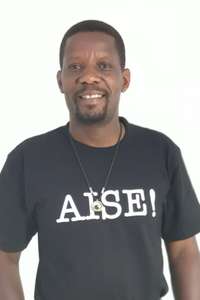 Benard Kiwia: Introducing Innovation Skills to School Children – Students Learning Kits
Benard Kiwia: Introducing Innovation Skills to School Children – Students Learning Kits
Biography: Having completed his studies at the Arusha Technical College as an electrical technician, Benard Kiwia decided to employ himself by doing different works, including developing various livelihood solutions and selling them to people. He is the founder of Acceleration Innovation and Social Entrepreneurship (AISE) https://aise.co.tz/.
When he was 16 years old, Bernard Kiwia designed and built his own film projector using local materials. “That was the first thing I ever made,” he remembers. “I like finding out how technology operates – and I like to have an idea and then try to make it work.”
Benard has helped hundreds of secondary school students, smallholder farmers, and microentrepreneurs design and make practical products from local materials. He is the master trainer of Creative Capacity Building (CCB) training – an approach which was developed by MIT D-Lab. From 2022 to mid-2023, Bernard worked with a Team from MIT D-Lab in Uganda and hosted CCB workshops to educate educators.
Session: The session aims at enriching the learning environment in Tanzania’s schools and beyond. Practical learning and understanding of the technologies applied in urban environments, construction and building, and applied science. Benard will describe the way he is using the kits he has developed to make learning intuitive. He trusts that planning and building together is one of the most fascinating practices to be followed, and that the bravery and mental skills needed to invent should be developed and nurtured through playful learning and the spirit of “actually doing things”.
Students and young people deserve a chance to study and contribute to the future. We hope that the learning kits are one module on the way to a diverse and exploratory exchange of knowledge that supports each and every student in their individual potentials.
Jesse Oljange-Avomeru: Innovation and entrepreneurship
Biography: Jese Is the founder (CEO) of Avomeru. Avomeru produces organic avocado oil using underutilized avocados in collaboration with smallholder farmers in rural Tanzania. He speaks, “I'm a Tanzanian entrepreneur empowering rural communities through technology. My passion lies in smallholder farming, women’s empowerment, and employment opportunities for the youth. Starting avocado oil pressing with a car jark in 2015, finally the vision has grown Avomeru - an enterprise which has grown and expanded to encompass and build relationships with farming villages across 12 regions of Tanzania.
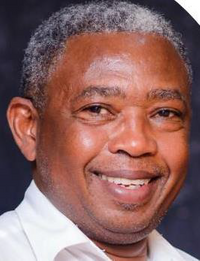 Mr. Livinus Manyanga: The Challenge and Opportunities of Innovation and Entrepreneurship in the Local Context
Mr. Livinus Manyanga: The Challenge and Opportunities of Innovation and Entrepreneurship in the Local Context
Biography: Mr. Livinus Manyanga is the Executive Secretary and Co-founder of KAKUTE Projects. KAKUTE Projects is a long-standing Non-Government Organisation based in Arusha, Tanzania since 1995. KAKUTE’s primary interest is to create vibrant innovations, technology business models, and sustainable ecosystems to deliver social and economic benefits for communities within Tanzania and East Africa. KAKUTE provides sustainable technology solutions for small-scale entrepreneurs in different Tanzanian regions. Mr. Manyanga has been the Executive Director for KAKUTE Projects for over 25 years. He won the 2007 edition of the “Roy Family Award for Environmental Partnership” assigned by the University of Harvard (USA). He is a mechanical engineer, vocational skills trainer and development professional with over 35 years of experience in the design and implementation of projects and enterprise development programs. In addition to his work with KAKUTE, Mr. Manyanga is an accomplished innovator in the agricultural value chain and environmental sectors in Tanzania. He pioneered the establishment of the PAYGO solar system and biofuel sub-sector in Tanzania.]
Session: Innovation and entrepreneurship are practices and disciplines. It is not the psychology and the character traits of entrepreneurs; it is the art of their actions and behavior. No matter how large or small, innovation challenges are essential hurdles to overcome. No business idea or model stays popular forever. In changing markets, the ability to adapt, change, and come up with new solutions is essential. Therefore, innovation is a valuable tool used by entrepreneurs to exploit change as different business or service opportunities arise. It is capable of being presented as a discipline, capable of being learned, and capable of being practiced. Entrepreneurs need to search purposefully for the sources, the changes, and the symptoms that indicate opportunities for successful innovation; then apply the principles of successful innovation to their work.
The KAKUTE Innovation and Entrepreneurship Hub is an integral part of an ecosystem of bottom-up approach innovation hubs developed in Tanzania. This program explores a wide range of technological innovation examples relating to community development at the districts and wards-level; as well as in institutions, organizations, policies, and management practices; with particular emphasis on the impacts of emerging technologies, education, and knowledge creation on economic, social, and environmental sustainability. We encourage partners alike to join the KAKUTE innovation and entrepreneurship hub and contribute ideas and content.
Biogas Technology
Biography: Dr. Peter P. Mashingo is a Senior Lecturer in Energy Engineering at Arusha Technical College (ATC), and a Ph.D. holder in Energy Engineering from the University of Dar es Salaam (UDSM) Tanzania. Other qualifications are an MSc and BSc in (Mechanical Engineering) from the Wroclaw University of Science and Technology (Poland). He also has a strong academic background, with experience in university teaching, professional training, research, technology development, and dissemination, as well as professional guidance on renewable energy research. He formerly worked and held managerial positions at ATC, including college head of the Automotive Engineering Department and head of research and publications at the College. He is also a member of various energy professional organizations, including the Tanzania Renewable Energy Association (TAREA) Northern Zonal and EWURA CCC, where he serves as the Northern Zonal Chairman. He has coordinated a number of international collaborative initiatives that have received funding from a variety of national and international bodies. He has participated in many major research, knowledge exchange, and capacity-building activities for and in collaboration with various national and international organizations, including government, public and private institutions. He has widely contributed to advancing knowledge and professional practices in engineering and technology, particularly in energy, technology, innovation, and entrepreneurship
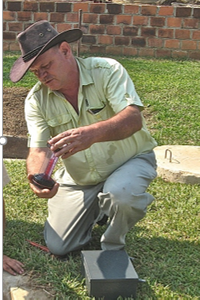
Biography: Christopher Kellner is the pioneer in biogas technology and has implemented many projects around the globe. He has been staying in Tanzania for many years and hence has a long institutional memory of the growth of the biogas sector in this country. He speaks, “The spread of biogas in Tanzania had to struggle for a long time. The moderator's view spans from 1983 to present day. The cooperation between the German GTZ (meanwhile GIZ, German International Cooperation) and CAMARTEC (Center for Agricultural Mechanization and Rural Technology) lasted between 1983 – 1992. The focus of dissemination with CAMARTEC concentrated on rural populations with two or more cows. A subsidy for these plants was not provided. Even though it was known that any soft organic matter could be turned into biogas, the target group was defined as farmers with a minimum of two cows. Also, the cooperation between SNV (Netherlands foreign aid) and the TDBP (Tanzania Domestic Biogas Program) concentrated on the same target group between 2008 – 2017. The project estimated 8,796 biogas plants installed by December 2013. Since then, the monitoring of biogas activities in Tanzania has stopped. Nonetheless, people who were trained in biogas-plant construction continued offering their services. Several groups like NGOs and training centers – as well as private sector companies – continue working on the technology today, but cannot achieve a significant breakthrough necessary for large-scale adoption.”
Session: A new strategy is required…
- What are particular difficulties hindering the successful extension of biogas technology?
- Should the government be involved?
- Can the private sector and NGOs manage this alone?
- Can non-functioning systems be repaired?
- Should advertising and awareness of biogas technologies be intensified?
- Can training more construction people improve the situation?
- Is the technology viable for end-users?
- Is the biogas business viable for entrepreneurs?
- Do we have service providers who can profit from the service they deliver?
These questions – and many more like them – will be tackled in the contributions of Christopher Kellner.
Prof. Karoli Njau: Industrial Biodigesters
Eng. Nicholas Mwakisambwe: Scaling up Biogas Systems in Tanzania – CAMARTEC Experience
Post-harvesting Technologies
 Eng. Noela Byabachwezi – CAMARTEC: Experience of Promoting Threshing Machines in Rural Communities - GENDER
Eng. Noela Byabachwezi – CAMARTEC: Experience of Promoting Threshing Machines in Rural Communities - GENDER
Biography: Eng. Noela Byabachwezi is a mechanical engineer by profession and she is currently pursuing a master's degree in engineering management specializing in Project Management. She has been working for the Centre for Agriculture Mechanization and Rural Technology (CAMARTEC) for more than 15 years in various roles like being a Creative Capacity Building (CCB) trainer, parts engineer, and a machine operator in a small tractor project; she has also supervised and constructed biogas plants. Byabachwezi is a facilitator of the ‘Innovation in Gender Equality’ (IGE) program and has taken part as a judge in various innovation competitions. From 2018 to date, she has been working as Senior Engineer taking the lead in developing and promoting various agricultural and rural technologies.
Session: Eng. Noela will share her experience by highlighting lessons and challenges she has been encountering in promoting threshing machines to the smallholder farmers in rural settings of Tanzania. She says, “Not matter of disseminating the technology only, but checking also how it affect both men and women”.
Frank Mollel: Food Drying
Mussa Chilemu: Airtight Underground Grain Storage
Mushi: Abiel Godlisten Moshi: Airtight Metal Grain Storages – GODII Metalworks
Biography: Abiel holds a bachelor’s degree in banking and finance. He works in a family company known as GODII Metal Works based in Arusha city. The company manufactures metal grain storage, pots, stoves, and gas cookers.
Clean Energy/Cookstoves
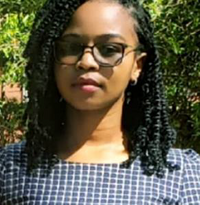 Rachel Macha – UpEnergy: Clean Energy
Rachel Macha – UpEnergy: Clean Energy
Biography: An environmentalist with a commitment to preserving our planet and a background in environmental conservation, Rachel Macha has dedicated her career to making a positive impact by working with various NGOs and companies on critical environmental matters.
Session: The Topic will emphasize clean energy technologies. Diving into the opportunities and advantages of clean energies. By harnessing the power of clean energy technologies, the agricultural sector can take significant steps towards a greener future, mitigating environmental impacts and contributing to a more sustainable global system.
 Prof Revocatus Machunda – Nelson Mandela-African Insitute of Science and Technology: Biogas Technology and the Future of Cropping and Clean Cooking in Tanzania
Prof Revocatus Machunda – Nelson Mandela-African Insitute of Science and Technology: Biogas Technology and the Future of Cropping and Clean Cooking in Tanzania
Biography: Professionally, Revocatus Machunda (PhD) is an Environmental Scientist. He has a background in Chemistry and Applied Microbiology. He has over 19 years of experience working as an academic staff at higher learning Institutions (SUA and NM-AIST). Since 2011, he has been training and supervising graduate students and mentoring junior researchers in the areas of fuel cells, biogas, and water purification technologies. He is also working on creating value addition to plant biomasses such as sisal waste BIOCOMPOSITES), biomass-derived activated carbons, among others. He has published over 120 journal papers in internationally-indexed databases and book chapters, and has two patents on defluoridation technology and biogas burner manifold (technology?).
Session: Several reports have been published detailing the establishment and operation of biogas digesters in both rural and urban environments in Tanzania and their contribution to the production of slurry for farm nutrient improvements and clean cooking fuel. The government declared a move toward 80% of households attain clean cooking by 2033. Contributions from various stakeholders on the establishment of the technology in both rural and urban environments to reach the target are currently underway. Despite evidence showing the technologies’ ability to remediate heavily-laden manure with fluoride, there still remains concerns about its low adoption rates. Indeed, joint efforts by stakeholders to realize the sustainability of the technology is needed. This presentation reviews what has happened to some selected households and institutional biogas set up and the benefits that could be accrued from biogas technology establishments in Tanzania, especially in rural settings and unproductive areas. We also provide perspective on the potential application of the technology in selected areas.
Keywords: Biogas, Digester, Manure, Electricity, Rural areas.
Christopher Kellner: Promoting Firewood for Clean Cooking
Biography: See his biography on the above page under biogas technology.
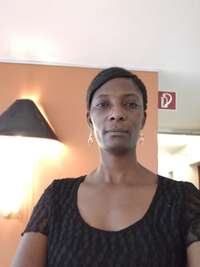 Lucia Petro: A Low-cost Cookstove which Uses Waste Engine Oil or Waste Vegetable Oil as a Clean Cooking Energy Source
Lucia Petro: A Low-cost Cookstove which Uses Waste Engine Oil or Waste Vegetable Oil as a Clean Cooking Energy Source
Biography: Lucia Petro is the founder of Burnstove Manufacturing Company Limited. She holds a Master’s Degree (MSc) in Sustainable Energy Science and Engineering (SESE) from Nelson Mandela African Institute of Science and Technology. For the past two years, she has been working with the Mechanical Engineering Department’s Biomass Engineering section at Arusha Technical College.
Ever since Lucia was a child, she was fascinated by discovering how things work and how they were made. Little did she know that her curiosity would end up making a difference in her community. The village in which Lucia grew up was facing health problems because of the firewood and charcoal they were using to cook their food. Lucia was determined to come up with a solution that would address this. While in secondary school, Lucia started to realize the importance of environmental conservation to communities and she was not happy that people were cutting down trees. She spoke: “I was not pleased with how our environment was polluted, it was a turning point in my life, and made me think about environmental and ecological issues caused by humans and started thinking about possible solutions.”
Session: Lucia will share her experience on low-cost cook stoves which use waste engine oil or waste vegetable oil as a clean cooking energy source.
Conservation Agriculture Mechanization
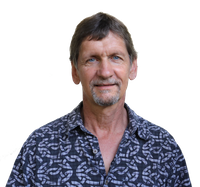 Neil Miller CFGB: Promoting ‘Maresha’ Scale-up through Mechanization Service Providers
Neil Miller CFGB: Promoting ‘Maresha’ Scale-up through Mechanization Service Providers
Biography: Neil Rowe Miller serves as a technical advisor to conservation agriculture projects funded by the Tearfund UK and Canadian Food Grains Bank in eastern Africa. His career spans 40 years working with small-scale farmers in the developing world as well as consulting for large-scale commercial grain farmers in the U.S. and running a non-profit agriculture training farm in central Texas.
Dr. John Saria, Tanzania Agricultural Research Institute-Selian
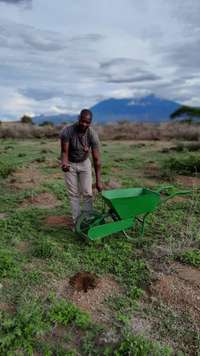 Frank Mollel: Manure-Spreading options, Maasai Conservation Agriculture (MCA)
Frank Mollel: Manure-Spreading options, Maasai Conservation Agriculture (MCA)
Biography: Frank Mollel is a farmer from Arusha, Tanzania. Throughout his life he has faced many challenges of Tanzanian agriculture, one of them was finding out how to effectively spread manure on the farm to improve soil fertility. In 2014, Frank developed his first manure spreader and started using it on his farm and selling it to fellow farmers. After receiving much feedback from users, he continued to improve the equipment and finally registered a company named Maasai Conservation Agriculture (MCA) to manufacture more manure spreaders for more customers. MCA manufactures not only manure spreaders, but also other products including, food dryers and spice grinders.
Session: Frank will share his experience about the manure spreading and the impact that has been realized from farmers through his equipment. The manure spreader is an intermediate and scalable technology used to increase soil fertility and crop productivity by evenly spreading manure on fields. This machine includes a rotor shaft, manure guides, and clutch mounted on a cart drawn by an animal or motorbike. Most farmers apply manure by shoveling, while others burn it as waste because the process is just too hard.
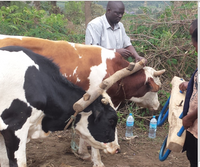
Biography: Boniface Okumu is the Founder of Oxen Clinic Uganda Company Limited – an organization based in Gulu city, Northern Uganda in East Africa that promotes the use of draft/draught animals. Born and raised in Gulu, Boniface has several years of experience in ADP technologies and is very passionate about animal draught power.
Session: Boniface will introduce ADP mechanization – highlighting levels of mechanization, effective ripping/operation, and its benefits for smallholder farming systems. He will also talk about the way they consider gender, challenges, and areas of growth.
Solar Pumps / Irrigation
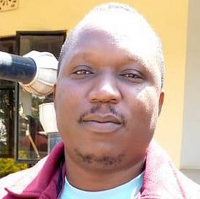 Seth Maximillian – Simsolar Ltd
Seth Maximillian – Simsolar Ltd
Biography: Seth Maximillian is an agronomist and since 2018 has been working with SIMUSOLAR Ltd as a sales officer in the northern zone of Tanzania – reaching customers in Kilimanjaro, Arusha, Tanga, and Manyara regions. As an agronomist, he has been providing farmers with appropriate technical support.
Session: In his presentation, Seth will share the experience of using solar systems for irrigation.
Shedrack – Nextec: N-Switch (an Offline Water Management and Soil Monitoring Tool for Irrigation Agriculture)
Biography: Shedrack C. Mkwepu is the Founder, Managing Director, and Lead Design Engineer at Nextec International. In 2019 – 2021 he was the Acting Branch Secretary of the Tanzania Renewable Energy Association for the northern zone. From 2018 – 2021 Shedrack worked as O&M Associate at PowerGen Renewable Energy. He is an Electrical Engineer by profession and graduated from Arusha Technical College.
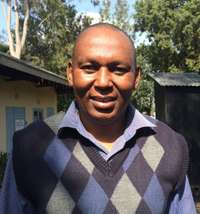 Harold Msanya – ECHO EA: Experience of Harvesting Water Using Hafirs for Small-scale Irrigation in East Africa
Harold Msanya – ECHO EA: Experience of Harvesting Water Using Hafirs for Small-scale Irrigation in East Africa
Biography: Harold Msanya is an engineer by profession and has implemented community-based projects for over 20 years in Tanzania. Major areas of expertise include - integrated water resources management, agriculture, renewable energy, and appropriate technologies. For the last seven years, Harold has been working for ECHO EA as the Innovation Coordinator, leading the Appropriate Technology department to work with small-scale CA farmers to develop solutions for draft power and animal welfare challenges.
Session: In semi-arid regions of East Africa, options for harvesting rainwater for multiple uses - including small-scale irrigation systems - are highly needed. Harold is going to share the experience of using an affordable rainwater harvesting system known as hafir. The session will explain how hafirs are constructed, users’ perceptions, challenges, and lessons.
Seed-saving Technologies
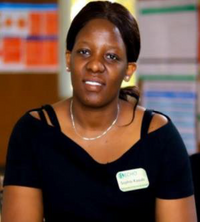 Sophia Kasubi – ECHO EA: Seed drying practices- Local technologies employed by smallholder farmers of Tanzania
Sophia Kasubi – ECHO EA: Seed drying practices- Local technologies employed by smallholder farmers of Tanzania
Biography: Sophia Kasubi has been the Executive Assistant for ECHO East Africa since March 2015 where she manages Sustainable Agriculture and Appropriate Technologies projects and programs. She holds a Bachelor's degree in Sociology with a Specialization in Social Policy, Planning, and Administration from the University of Dar es Salaam. She has ten years of experience in managing and implementing programs and projects aimed at improving sustainable agriculture, food security, appropriate technologies, and improving nutrition. Sophia is currently pursuing her Master’ degree in Project Management at East and Southern African Management Institute (ESAMI) to advance her career in Project Management.
Session: Teaching about seed saving and banking to smallholder farmers and individuals who are interested in local seed varieties is crucial for the ECHO East Africa seed bank. This presentation will highlight best practices for drying seeds employed by smallholder farmers and individuals by using locally available technologies that are cheap and inexpensive to make and modify. Sophia will also share how the use of local technology is important in improving the livelihood of people who are embarking on seed saving and banking initiatives.
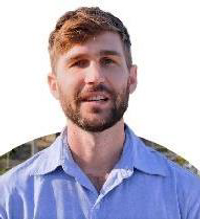 Patrick Trail – ECHO Asia: Experience of Seed Drying/Saving Technologies from Asia
Patrick Trail – ECHO Asia: Experience of Seed Drying/Saving Technologies from Asia
Biography: Patrick is originally from Louisiana, USA, but spent most of his growing-up years overseas in southern Africa. Patrick completed his agricultural training in agronomy at Virginia Tech University and worked on a Feed the Future project in Senegal while completing his graduate degree. Before moving to Asia, he participated in ECHO's tropical agriculture internship program in Florida and has since worked with the ECHO Asia team in Thailand for the past 7 years. Currently, he serves as the ECHO Asia Regional Director. Patrick has extensive experience throughout the Asia region, having worked on the ground on 200+ farms and project sites within the ECHO network, including organizing training workshops and conferences and publishing several written materials related to small-scale agricultural systems.
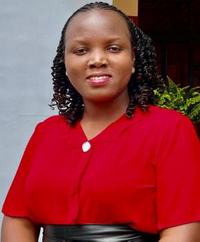 Ayesiga Buberwa– IDP: Revitalizing Farmer-Managed Seed Systems in Tanzania: Experience and Lessons Learned
Ayesiga Buberwa– IDP: Revitalizing Farmer-Managed Seed Systems in Tanzania: Experience and Lessons Learned
Biography: Ayesiga Buberwa has 19 years of experience in the areas of Food Systems Transformation and Community Development. She is currently serving as the Country Director for Iles De Paix (IDP) in Tanzania, a reputable Belgian NGO committed to fostering sustainable, inclusive, healthy, and climate-resilient food systems through agroecology. She has a BSc in Nutrition and a Masters Degree in Community Development. Ayesiga is a visionary leader and has successfully managed different programs on nutrition, horticulture, livelihoods, and sustainable agriculture. She is an advocate for the farmer-managed seed systems, agroecology, and safe food. Ayesiga's passion lies in ensuring the people of Tanzania consume safe, healthy, and nutritious food. Moreover, she advocates for the welfare of farmers and all stakeholders involved in the food systems, striving to ensure they reap the benefits they rightfully deserve from their endeavors.
Clean Water / Water Harvesting
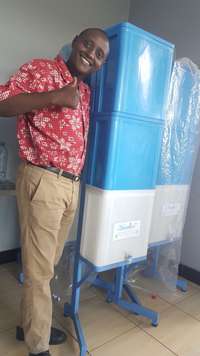 Nanofilter – Prof Hilonga NM-AIST : From the Laboratory to Market - A Case of a Low-cost Water Filter
Nanofilter – Prof Hilonga NM-AIST : From the Laboratory to Market - A Case of a Low-cost Water Filter
Biography: Prof. Askwar Hilonga is featured in a video with Bill Gates and other world renown dignitaries and got connected to His Royal Highness The Duke of York, Prince Andrew. He is the winner of 22 reputable awards, including the World Health Organization (WHO) Health Prize, Pitch@Palace, and the Africa Prize for Engineering Innovation 2015. Sponsored by the British Royal Academy of Engineering - he invented a “Low-Cost Water Filter (Nanofilter®)”. Askwar also has a patent and trademark, published 64 Articles by June 2023, authored 3 books, and 1 Book Chapter – he is a role model for the “Academia for Society and Industry”, an approach championed by NM-AIST University, where he works as a professor.
Session: A Nanofilter is a water purification system that was invented by Askwar Hilonga, a Professor at NM-AIST. It provides clean and safe water by removing bacteria and other microorganisms and Fluoride which affect teeth and bones. The filter is evaluated by the World Health Organization (WHO) and has a performance of 99.9999%. It has contributed to the reduction of waterborne disease in Arusha by 42.9% (according to the government report). The filter is sold to households and institutions like schools and hospitals at an affordable price compared to imported filters
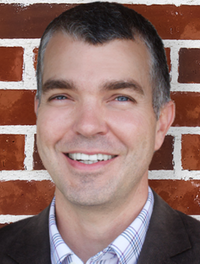 Greg Bixler – Design Outreach USA
Greg Bixler – Design Outreach USA
Biography: Greg Bixler, Ph.D., P.E., is a Co-Founder and CEO of Design Outreach (DO). He also teaches an appropriate technology course at The Ohio State University (his alma mater). Dr. Bixler started his mechanical engineering career at Battelle where he worked with interdisciplinary teams of engineers working on a variety of R&D programs. He came up with the idea for Design Outreach in 2007 after seeing extreme poverty up close and personal in Central Asia and realized that he could help alleviate suffering using his engineering talents. In 2013, Design Outreach was born. His endeavors have led him to 30 countries.
Session: The story of LifePump is a God story – combining faith, prayer, engineering, and an abundance mentality to help tackle the world water crisis by creating a long-lasting, deep-reaching hand pump desperately needed in developing countries. This was accomplished by using tools such as human-centered design as the foundation of the Design Outreach Way of Appropriate Technology development. The idea for LifePump started from a conversation between a couple of engineers and a long-time missionary from the Central African Republic. This session will include the process of appropriate technology development utilized by Design Outreach, but also the ups and downs of going from a concept to a nationally accepted hand pump option in Malawi and Zambia. This process is being applied in other appropriate technology areas in WASH and medical devices. This talk will emphasize the importance of value proposition and Matthew 7:12 – the Golden Rule – in making decisions about requirements and what long-term sustainability means to DO. As appropriate technology developers, the status quo is a strong competitor, but the story of LifePump is one that should inspire others into action and lead to global change in community development.
Building Options
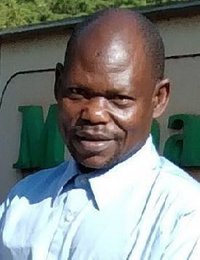 Rev. Dr. Edward Odhiambo Nyamde: Bamboo Plant and its Eco-system in Transforming Livelihoods through Appropriate Technology, Cottage Industry Development, and Environmental Resilience in the African Landscape
Rev. Dr. Edward Odhiambo Nyamde: Bamboo Plant and its Eco-system in Transforming Livelihoods through Appropriate Technology, Cottage Industry Development, and Environmental Resilience in the African Landscape
Biography: Rev. Dr. Edward Ohdhiambo Nyamde is a Kenyan Social Entrepreneur, Missions Mobilizer, and Missiologist specializing in Pastoral Counseling (B.A. degree), Social Enterprise Development in Missional Contexts (M.A. degree), and Organization Development in Missional Contexts (Ph.D.) all from Global Missions University USA, among other diplomas and certificates. His work began in 1992 as a young man, enthusiastic to preach and win souls to faith in the Lord Jesus Christ. Then, he delved into social work alongside his pastoral ministry in June 1998 and founded Grace Hour Enterprises in April 1999.. In the year 2021, he and his team organized what they had done in the community with farm-based households into an Agribusiness Development Program for the Sifa Bible Institute Division. This led to the creation of the Bamboo Resource Centre.
Session: The presentation will focus on building regional thought leadership and partnerships that use the bamboo plant and its ecosystem in appropriate technology innovation and renewable energy development in Africa. I will focus on the sub-topics of transforming livelihoods, the African landscape, and the three value chain levels namely: appropriate technology level, cottage industry level, and environmental resilience level. This way, my presentation will provide a simple map for each participant and stakeholder to engage in thought leadership during and after the symposia on the bamboo plant and its ecosystem.
Craig Bielema: Experience in using bamboo for construction
Arthur Taylor: Low-cost soil-compressed blocks
Ten-minute Lightning Talks
Jalphary Donge of Small Scale Industries Development Organization (SIDO)
Jerome Cupido: Hay baler
Learning Visits
Interested participants can visit any of the following places.
- ECHO East Africa: Learn about what ECHO is currently doing including tree planting, seed banking, and appropriate technologies
- Centre for Agricultural Mechanization and Rural Technology (CAMARTEC)
- Christopher Kellner’s home: renewable energy, fuel efficient stoves, biochar
NOTE:
- Details of these places will be posted at the symposium’s Main Hall from day 1: interested participants will sign their names on the respective place they want to visit
- Transport will be arranged by the organizing team